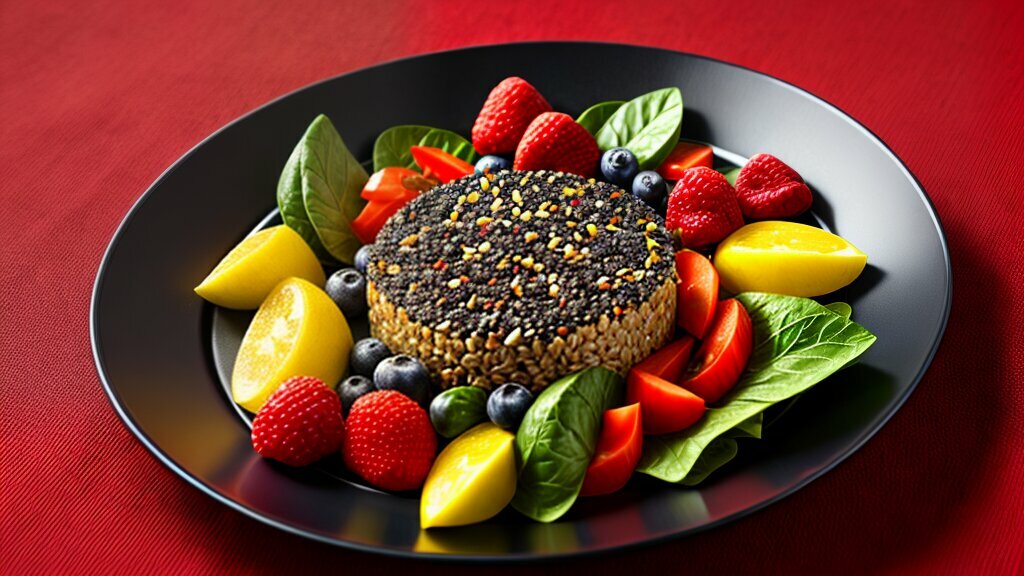If you’re looking for a dietary approach that can optimize your health and help you achieve your weight loss goals, intermittent fasting nutrition could be the solution you’ve been searching for. By incorporating periods of fasting into your diet, you can not only promote weight loss but also reduce inflammation, improve insulin sensitivity, and support overall wellbeing.
However, it’s important to approach intermittent fasting nutrition with expert guidance to ensure you’re following a safe and sustainable plan that meets your unique needs. In this article, we’ll explore the benefits of intermittent fasting nutrition and provide you with tips and strategies for success in the Australian context.
Key Takeaways:
- Intermittent fasting nutrition can support weight loss and improve overall health.
- Expert guidance is essential to ensure a safe and sustainable approach.
- This article will provide you with the information you need to succeed with intermittent fasting nutrition in Australia.
Understanding Intermittent Fasting and its Benefits
If you’re looking for a dietary approach that promotes weight loss and improves overall health and wellbeing, intermittent fasting nutrition may be the right choice for you. Intermittent fasting is an eating pattern that involves alternating periods of fasting and non-fasting.
There are several methods of intermittent fasting, including:
| Method | Description |
|---|---|
| 16/8 Method | You fast for 16 hours and eat within an 8-hour window each day. |
| 5:2 Diet | You eat normally for 5 days and restrict calorie intake to 500-600 for 2 non-consecutive days per week. |
| Alternate-Day Fasting | You alternate fasting days with non-fasting days. |
Intermittent fasting has been shown to have numerous benefits, including:
- Weight loss: Intermittent fasting can help you lose weight by increasing metabolism and reducing calorie intake.
- Improved insulin sensitivity: Intermittent fasting can improve insulin sensitivity, which can lower the risk of type 2 diabetes.
- Better heart health: Intermittent fasting can lower blood pressure, reduce triglycerides, and improve cholesterol levels, all of which contribute to better heart health.
- Reduced inflammation: Intermittent fasting can reduce inflammation, which is linked to numerous chronic diseases.
- Improved brain function: Intermittent fasting has been shown to improve brain function and reduce the risk of neurodegenerative diseases.
It is important to maintain a healthy diet during fasting periods to ensure that your body receives sufficient nutrients. Emphasize nutrient-rich meals and avoid processed or high-sugar foods. Proper hydration is also essential during fasting periods.
Now that you have a better understanding of what intermittent fasting is and its benefits, it’s time to learn how to create a balanced diet for this dietary approach.

Creating a Balanced Diet for Intermittent Fasting
When following an intermittent fasting nutrition plan, it’s important to consume a balanced diet that provides your body with the necessary nutrients to function optimally. In Australia, this means focusing on whole foods that are rich in vitamins, minerals, and fiber.
During eating periods, aim to include a variety of vegetables, fruits, lean proteins, and healthy fats in each meal. This will help maintain satiety and keep your energy levels consistent throughout the day.
| Food Group | Recommended Servings per Day |
|---|---|
| Vegetables | 5-6 |
| Fruits | 2-3 |
| Whole Grains | 3-4 |
| Protein (lean meats, legumes, nuts, seeds) | 2-3 |
| Dairy or Dairy Alternatives | 2-3 |
| Healthy Fats (olive oil, avocado, nuts) | 1-2 |
It’s also important to pay attention to your macronutrient intake, especially during fasting periods. Aim to consume a moderate amount of protein to help preserve muscle mass and support satiety. Incorporating healthy fats, such as avocados and nuts, into your diet can also help keep you feeling full.
Finally, don’t forget to stay hydrated. Water and other non-caloric beverages, such as herbal tea, can help keep you feeling full and energized throughout the day.

By following a balanced diet during both fasting and non-fasting periods, you can ensure that your body receives the necessary nutrients it needs to thrive. Consult with a healthcare professional or registered dietitian to develop an individualized meal plan that aligns with your specific nutritional goals and preferences.
Understanding Macronutrients for Intermittent Fasting
Macronutrients, including carbohydrates, proteins, and fats, play a crucial role in supporting your intermittent fasting nutrition goals in Australia. By understanding how each macronutrient affects your body during different fasting periods, you can optimize your diet and achieve your health goals.
Carbohydrates: During non-fasting periods, carbohydrates provide your body with energy for physical and mental activities. However, consuming too many carbohydrates during fasting periods can lead to a spike in insulin levels, which can disrupt your fasting state. To avoid this, it’s best to consume complex carbohydrates, such as whole grains and vegetables, in moderation during non-fasting periods. This helps to stabilize blood sugar levels and promote a smooth transition into fasting periods.
Proteins: Proteins are essential for building and repairing muscle tissue, especially during fasting periods when your body relies more on protein for energy. As such, it’s important to consume adequate amounts of protein during non-fasting periods, with an emphasis on lean sources such as chicken, fish, and legumes. This helps to maintain muscle mass and support your weight loss goals.
Fats: Healthy fats, such as those found in nuts, seeds, and avocados, can provide your body with a sustained source of energy during fasting periods. However, it’s important to consume them in moderation, as excess fat intake can also disrupt your fasting state. During non-fasting periods, consuming healthy fats in moderation can also help to promote satiety and reduce cravings.
To optimize your macronutrient intake during intermittent fasting in Australia, it’s best to consult with a professional who can advise on personalized dietary recommendations.

Effective Meal Planning for Intermittent Fasting
Planning your meals is crucial to achieving success with intermittent fasting in Australia. By creating a well-rounded eating plan that aligns with your fasting schedule, you can optimize your health and weight loss goals. Here are some effective meal planning strategies to consider:
1. Plan Ahead
You should plan your meals ahead of time to ensure you have the necessary ingredients and meals prepared for when you’re in a hurry. This will help you to avoid skipping meals or reaching for unhealthy snacks. Try meal prepping during the weekend to save time during the week.
2. Consider Nutrient Density
Your meals should be nutrient-dense and provide you with the necessary macronutrients and micronutrients to keep you energized throughout the day. Opt for healthy, whole foods such as leafy greens, lean proteins, and healthy fats. Avoid processed foods, added sugars, and high-calorie snacks.
3. Adjust Your Portions
Intermittent fasting allows you to adjust your calorie intake according to your goals. During the non-fasting periods, ensure you’re consuming enough calories to support your energy levels and prevent muscle loss. During the fasting periods, adjust your portions to meet your fasting goals.
4. Stay Hydrated
Drinking enough water and staying hydrated is important during fasting periods. You should aim to drink at least eight glasses of water per day. You can also consume unsweetened herbal tea or low-calorie beverages during fasting periods.
5. Use a Meal Delivery Service
If you’re pressed for time or lack the skills to prepare healthy meals, consider using a meal delivery service that specializes in intermittent fasting nutrition in Australia. These services can provide you with healthy, nutrient-dense meals that align with your fasting schedule.

By following these effective meal planning strategies in Australia, you can successfully incorporate intermittent fasting nutrition into your lifestyle. Remember to consult with a professional to ensure your dietary approach aligns with your individual needs and preferences.
Intermittent Fasting and Weight Loss
Intermittent fasting has gained popularity as an effective way to lose weight in Australia. But how exactly does it work? During fasting periods, your body enters a state of ketosis, where it switches from using glucose to burning fat for energy. This can lead to weight loss as stored fat is burned for fuel.
However, it’s important to remember that weight loss is not just about fasting. To achieve the best results, you need to focus on proper nutrition during both fasting and non-fasting periods. This means consuming nutrient-dense, whole foods that provide the necessary vitamins and minerals for your body to function optimally.
To maximize weight loss success, it’s recommended to seek guidance from a nutrition professional who can tailor an eating plan to your specific needs and preferences. They can also help you determine the most suitable fasting protocol for your goals, whether it’s time-restricted eating or alternate day fasting.
It’s worth noting that while intermittent fasting can be effective for weight loss, it may not be suitable for everyone. Those with pre-existing health conditions or a history of disordered eating should consult with their healthcare provider before starting any new dietary approach.

Overall, intermittent fasting can be a powerful tool for weight loss when combined with a healthy and balanced diet. Be sure to seek professional guidance and listen to your body to ensure a safe and effective journey towards your weight loss goals.
Ensuring Micronutrient Intake During Intermittent Fasting
While practicing intermittent fasting, it’s important to ensure that you are still getting the necessary micronutrients for optimal health. With a restricted eating window, it can be challenging to consume adequate amounts of vitamins and minerals.
To maintain healthy micronutrient levels during fasting periods, it’s recommended to focus on nutrient-dense foods such as leafy greens, fruits, vegetables, nuts, and seeds. These foods are packed with vitamins and minerals that your body needs to function properly.
One micronutrient that may be at risk during fasting periods is iron, which is essential for blood health and energy production. To increase iron absorption, incorporate vitamin C-rich foods like citrus fruits and bell peppers into your meals.
Another micronutrient that may be lacking during fasting periods is calcium, which is important for bone health. To boost calcium intake, incorporate dairy products, leafy greens, and fortified non-dairy milks into your diet.
It’s also essential to stay hydrated during fasting periods by drinking plenty of water and consuming hydrating foods such as cucumbers and watermelon.
Consulting with a nutrition expert can also help ensure that your micronutrient needs are being met during intermittent fasting. They can provide personalized guidance on dietary intake and supplementation based on your individual needs and preferences.

Achieving Muscle Gain with Intermittent Fasting
If you’re looking to build muscle while practicing intermittent fasting, there are some important considerations to keep in mind.
Firstly, it’s crucial to time your meals and fasting windows strategically to ensure that your body has the nutrients it needs to support muscle growth.
During your eating period, focus on consuming a balanced diet that includes plenty of protein to support muscle repair and growth. Aim to consume at least 1 gram of protein per pound of body weight per day, and spread your protein intake evenly throughout your eating window.
It’s also important to pay attention to your carbohydrate intake. While it’s possible to build muscle while following a low-carbohydrate diet, consuming some carbohydrates can help to fuel your workouts and support muscle growth. Try to consume carbohydrates that are high in fiber and low in sugar, such as leafy greens, whole grains, and sweet potatoes.
In terms of macronutrient distribution, some experts recommend a higher fat intake during fasting periods to support satiety and maintain energy levels. However, this may vary depending on your individual needs and goals.
Another key strategy for building muscle while intermittent fasting is to incorporate strength training into your exercise routine. Focus on compound exercises that target multiple muscle groups, such as squats, deadlifts, and bench presses. Aim to lift heavy weights for fewer reps to promote muscle hypertrophy.
Finally, consider supplementing with branched-chain amino acids (BCAAs) to support muscle recovery and growth. BCAAs are essential amino acids that are particularly important for muscle protein synthesis.

“When it comes to building muscle while practicing intermittent fasting, it’s important to focus on nutrient timing, macronutrient distribution, and strength training.”
Conclusion
Congratulations on taking the first step towards unlocking the benefits of intermittent fasting nutrition in Australia. By understanding the various methods and benefits of intermittent fasting, as well as creating a balanced diet and effective meal planning, you are on your way to achieving your health and weight loss goals.
Remember to pay attention to your macronutrient and micronutrient intake to ensure optimal results. The evidence-backed information and practical tips provided can be a great starting point, but don’t hesitate to seek personalized advice from professionals to ensure your dietary approach aligns with your specific needs and preferences.
Intermittent fasting can also be a useful tool for supporting muscle gain goals in Australia. By timing meals strategically and incorporating the right macronutrients and supplements, you can achieve muscle growth success while practicing intermittent fasting.
Keep in mind that practicing intermittent fasting nutrition requires discipline and commitment, but the rewards are worth it. By optimizing your health through proper nutrition, you can lead a happier, healthier life in Australia.
FAQ
Q: What is intermittent fasting nutrition?
A: Intermittent fasting nutrition is a dietary approach that involves alternating periods of fasting and eating. It focuses on timing meals strategically to optimize health and achieve weight loss goals.
Q: What are the benefits of intermittent fasting?
A: Intermittent fasting offers various benefits, including improved insulin sensitivity, increased fat burning, reduced inflammation, and enhanced cellular repair and autophagy.
Q: How can I maintain a healthy diet during intermittent fasting?
A: It is important to prioritize nutrient-rich foods during eating windows and avoid excessive consumption of processed and sugary foods. Opt for whole grains, lean proteins, fruits, vegetables, and healthy fats to support overall wellbeing.
Q: What are the key components of a balanced diet for intermittent fasting?
A: A balanced diet for intermittent fasting should include a mix of macronutrients (carbohydrates, proteins, and fats), as well as a variety of micronutrients (vitamins and minerals). Focus on consuming quality foods that provide adequate nourishment.
Q: How should I plan my meals for intermittent fasting?
A: Effective meal planning involves considering your fasting schedule and ensuring that your meals align with your eating and fasting windows. Plan ahead, incorporate a variety of foods, and aim for balanced and satisfying meals.
Q: Can intermittent fasting help with weight loss?
A: Yes, intermittent fasting can be an effective tool for weight loss. By creating a calorie deficit during fasting periods and optimizing nutrient intake, it can support fat loss while preserving muscle mass.
Q: How can I ensure adequate micronutrient intake during intermittent fasting?
A: Pay attention to your food choices and consider including a wide range of nutrient-dense foods in your eating windows. If necessary, consult a healthcare professional for personalized guidance and potential micronutrient supplementation.
Q: Is it possible to gain muscle while practicing intermittent fasting?
A: Yes, it is possible to achieve muscle gain while practicing intermittent fasting. By strategically timing meals, prioritizing protein intake, and following a well-designed exercise program, muscle growth can be supported.
